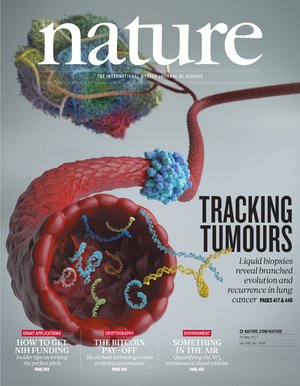 A former researcher at Johns Hopkins who voiced concerns about a now-retracted paper in Nature has lost another bid for whistleblower protection.
A former researcher at Johns Hopkins who voiced concerns about a now-retracted paper in Nature has lost another bid for whistleblower protection.
Daniel Yuan, a longtime statistician for former Hopkins yeast geneticist Jef Boeke, was dismissed in 2011, after he’d spent years raising concerns about research coming out of the lab. Yuan’s criticisms, which continued after he stopped working for Boeke, peaked in 2012 after Boeke and former labmate Yu-li Lin published a paper in Nature. Later that year, Lin was found dead in his lab, a suspected suicide. In 2013, the paper was retracted, citing an inability to reproduce the main conclusions.
Since 2013, Yuan has pursued a wrongful termination lawsuit, claiming that federal regulations surrounding scientific misconduct afforded him protection from retaliation.
In late March, Maryland’s highest court ruled against Yuan, saying that those misconduct regulations are “too vague” to offer cover to employees claiming whistleblower protection. According to lawyers we consulted, the decision could make it harder for would-be whistleblowers to fight retaliation, while also giving institutions more leeway to handle these issues on their own.
Continue reading Would-be Johns Hopkins whistleblower loses appeal in case involving Nature retraction
 Sometimes, even a short notice catches our attention.
Sometimes, even a short notice catches our attention. A Rutgers computer scientist is retracting conference proceedings via an unusual channel: his personal blog.
A Rutgers computer scientist is retracting conference proceedings via an unusual channel: his personal blog. The fallout continues for a study conducted at a local CrossFit gym by researchers at The Ohio State University. First
The fallout continues for a study conducted at a local CrossFit gym by researchers at The Ohio State University. First  This week, the New England Journal of Medicine issued a type of editor’s note we’ve never seen before, on a
This week, the New England Journal of Medicine issued a type of editor’s note we’ve never seen before, on a 
 A former researcher at Johns Hopkins who voiced concerns about a now-retracted paper in
A former researcher at Johns Hopkins who voiced concerns about a now-retracted paper in  Reuters has removed a story about gender confirmation surgery, saying it included problematic data.
Reuters has removed a story about gender confirmation surgery, saying it included problematic data.